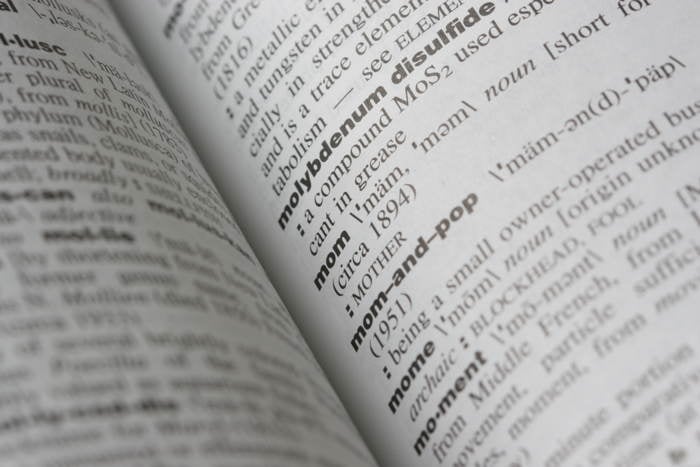Despite of English language's incredible variety of words and tenses, certain ideas just don't translate, like these interesting words that don't translate into English.

It was Rudyard Kipling who said that words are the most powerful drug of mankind. But unlike more conventional drugs, certain words have no use once they cross the border.
Cultures make language in their image, and sometimes there are linguistic “reflections” in one language that simply don’t find their partner in another. Enter these fantastic words, each of which encompasses feelings and emotions that the English language can only use entire phrases to define.
Interesting Words: Toska, Russian

Source: Mikel Golofaro
Though the word can roughly be translated as sadness or melancholy, author Vladmir Nabokov had much more distinct description of the endearing term:
“No single word in English renders all the shades of toska. At its deepest and most painful, it is a sensation of great spiritual anguish, often without any specific cause. At less morbid levels it is a dull ache of the soul, a longing with nothing to long for, a sick pining, a vague restlessness, mental throes, yearning. In particular cases it may be the desire for somebody or something specific, nostalgia, love-sickness. At the lowest level it grades into ennui, boredom.”
Mamihlapinatapei, Yagan (language of Tierra del Fuego)
This word is mentioned in the Guinness Book of World Records as the most succinct word, and is also considered the hardest word to translate. Roughly, it means “the wordless, yet meaningful look shared by two people who both desire to initiate something but are both reluctant to start”.
Litost, Czech

Source: WordPress
This simple Czech word that packs a heavy punch. That is, of course, if you can understand it. Expressing his frustration with this, author Milan Kundera wrote:
“Litost is an untranslatable Czech word.
Its first syllable, which is long and stressed, sounds like the wail of an abandoned dog. As for the meaning of this word, I have looked in vain in other languages for an equivalent, though I find it difficult to imagine how anyone can understand the human soul without it.”
Its closest translation means a state of agony and torment created by the sudden sight of one’s own misery.
Interesting Words: Tartle, Scottish

Source: Photobucket
This crafty—and almost onomatopoetic—little Scottish word refers to the hesitation when first introducing someone because you have forgotten their name.
Ilunga, Bantu
The Bantu word means a person “who is ready to forgive and forget any first abuse, tolerate it the second time, but never forgive nor tolerate on the third offense”. In a survey of 1,000 linguists, “ilunga” was voted the world’s most difficult word to translate.
Interesting Words: Cafuné, Portuguese

Source: The Week
The act of romantically running one’s fingers through someone’s hair.
Torschlusspanik, German

Source: 4 Free Photos
The literal translation of this word means “gate-closing panic”, but in actuality, the word refers to one’s realization that life is passing by them, and their subsequent fear of diminishing opportunities he or she grows older.
Wabi-Sabi, Japanese

Source: WordPress
Simple enough to say, but a little less simple to understand, this Japanese word translates as living in a way where you embrace the imperfections and natural growth and decay of life.
Interesting Words That Don’t Exist In English: Schadenfreude, German

Source: WordPress
A word sure to articulate thoughts that many people no doubt have: the pleasure derived from seeing someone else’s misfortune.
Saudade, Portuguese, Galician

Source: Scraps Dinámicos
This poignant word means to long for something or someone that you love and have lost. It’s been described by some as the love that remains for a person after their physical presence has disappeared.
Atolondrar/Aturdir, Spanish

Source: Work Joyously
Something almost everyone can relate to, this verb means to become so overwhelmed by something that you become scatterbrained and do something careless.
Interesting Words From Other Languages: Botellón, Spanish

Source: WordPress
A Spanish word that encompasses an open-air drinking session in which people bring their own store-bought alcohol.
Kummerspeck, German
[caption id="attachment_25097" align="aligncenter" width="700"] Source: Salon
Source: SalonA fun German word to describe the excess weight you gain from emotional overeating. Its literal translation—grief bacon—is just as colorful.
Shemomedjamo, Georgian

Source: Rawa Yurveda
This Georgian word means that you’ve accidentally eaten a whole meal—not because you were hungry, but because the food just tasted good. Maybe there’s some underlying kummerspeck?
Interesting Words From Other Languages: Bakku-shan, Japanese

An adjective for a girl who looks pretty from the back, but isn’t considered attractive from the front. Utterly charming, we know.
Iktsuarpok, Inuit

Source: Flickr
A gorgeous word that refers to the feeling of anticipation that causes you to repeatedly look outside and see if anyone is coming.
Pana Po’o, Hawaiian

Source: Modern Mixing
The Hawaiian word for scratching your head in order to remember something you have forgotten.
After reading about these interesting words from languages around the world, check out some of the most interesting words with origins that most people don’t know.





